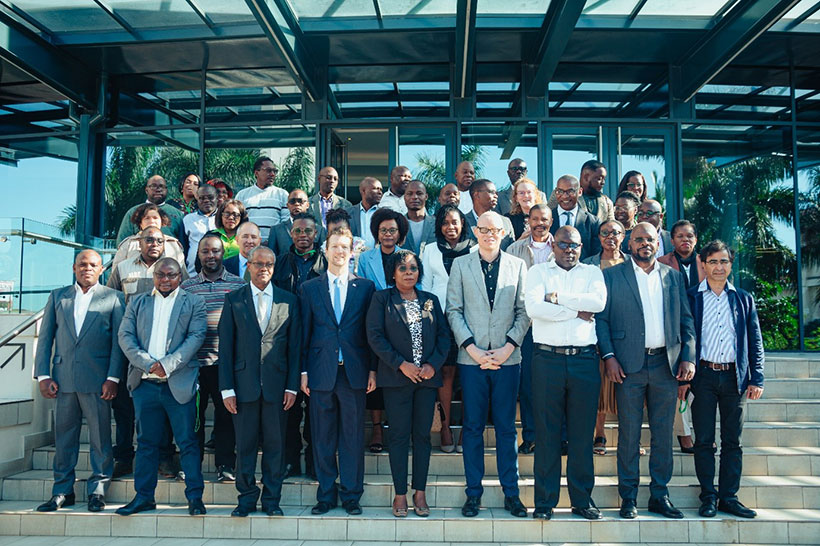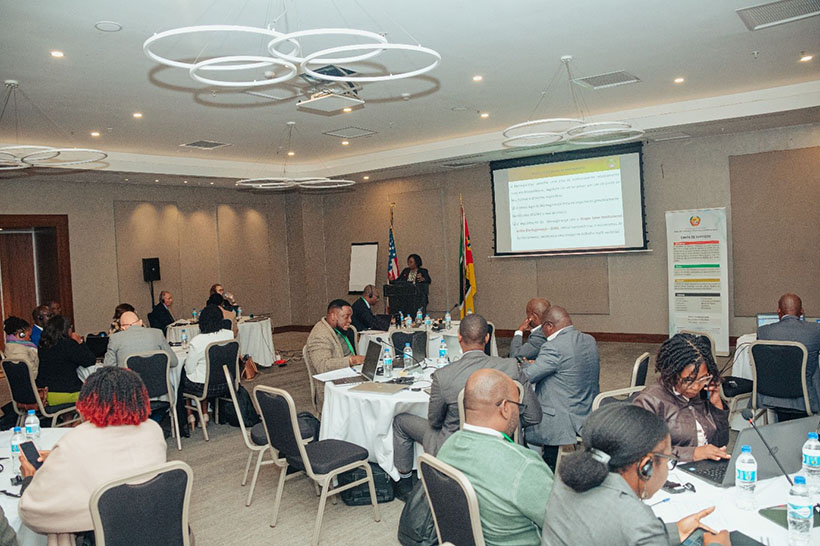25 June 2024
Mozambique is on the verge of initiating significant research in crops and animals using genome editing, as the country’s biosafety authority plans to develop a framework to guide such research activities. This was highlighted during a biotechnology workshop held on 5-7 June in Maputo, organized by IITA in collaboration with the University of California-Davis and AUDA-NEPAD. The event assembled scientists, farmer representatives, biosafety regulators, and policymakers to discuss the prospects of genome editing in Africa.
 Cross section of the participants after the workshop.
Cross section of the participants after the workshop.
The Mozambique workshop was the third in a series of biotechnology workshops to facilitate discussions on the prospects of genome editing in Africa. Speaking during the biotechnology stakeholder workshop held in Maputo, the Director and Coordinator of the Inter-Institutional Biosafety Working Group (GIIBS), Roda Nuvunga, revealed the nation’s commitment to developing genome editing guidelines as complementary biosafety legislation.
“Eight biosafety legislative documents are awaiting approval, and the genome editing guidelines will be the ninth document. This forms part of our efforts to strengthen our biosafety legislation,” Nuvunga said. She further emphasized the importance of these training initiatives, noting that the workshop provided an essential platform for knowledge sharing and capacity building, which is crucial for developing these guidelines.
The Director for the Eastern Africa Hub at IITA and Biotechnology Program Leader, Leena Tripathi, highlighted the critical need for robust regulatory frameworks to support biotechnology advancements in Africa. Her insights into the potential of genome editing to enhance food security and agricultural sustainability were key components of the workshop.
The Director at the Seed Biotechnology Center and Scientific Director at the African Orphan Crops Consortium at the University of California-Davis, Allen van Deynze, also emphasized the importance of developing resilient crop varieties through genome editing, providing participants with a clear understanding of the scientific and practical applications of this technology.
 Participants during the biotechnology workshop in Maputo.
Participants during the biotechnology workshop in Maputo.
In addition to technical presentations, the workshop focused on strategic communication and advocacy. GIIBS is drafting a communication and advocacy strategy to raise awareness about biosafety. ISAAA AfriCenter’s Walter Langat applauded the Biosafety Working Group for its efforts to develop a biosafety communication strategy. He called for collaborative approaches in addressing biosafety concerns and stemming the burden of misinformation about modern biotechnology.
Mozambique ratified the Cartagena Protocol on Biosafety in 2001 (Resolution no. 11/2001) and created GIIBS, whose mandate is to co-ordinate biosafety activities in the country. Unlike Kenya and Zambia, the Ministry of Science and Technology is the National Biosafety Authority. Mozambique is receptive to genome editing technology, and the feedback from most participants was about the desire to have the government invest more in research. The country is currently conducting multi-locational trials for drought-tolerant and insect-resistant maize under the Water Efficient Maize for Africa (WEMA) program.
As Mozambique gears up for genome editing research, the extensive training initiatives and capacity-building efforts underscore the country’s potential to become a leading player in the field. By leveraging modern biotechnology, Mozambique is well-positioned to address agricultural challenges and improve livelihoods, setting a precedent for other nations in the region.